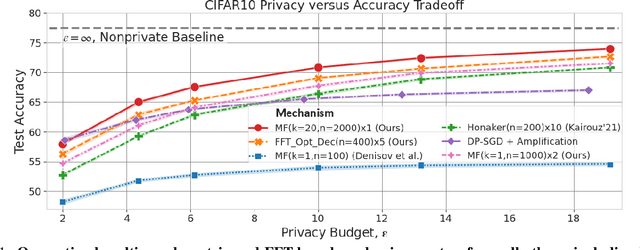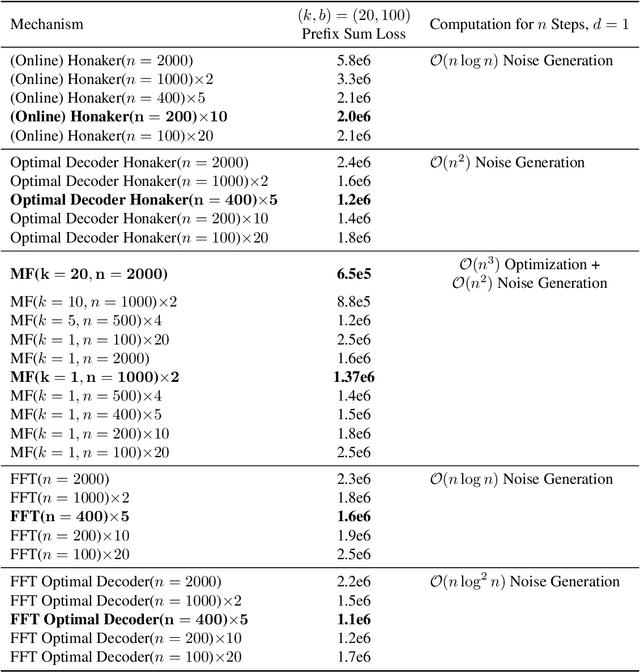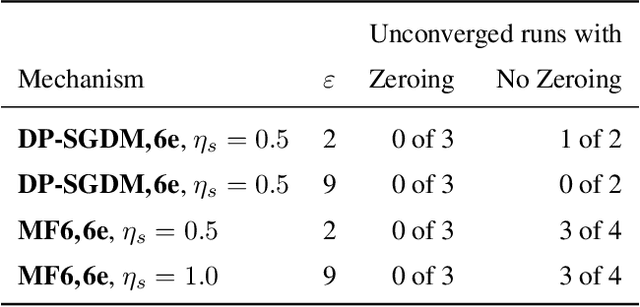Multi-Epoch Matrix Factorization Mechanisms for Private Machine Learning
Paper and Code
Nov 12, 2022



We introduce new differentially private (DP) mechanisms for gradient-based machine learning (ML) training involving multiple passes (epochs) of a dataset, substantially improving the achievable privacy-utility-computation tradeoffs. Our key contribution is an extension of the online matrix factorization DP mechanism to multiple participations, substantially generalizing the approach of DMRST2022. We first give conditions under which it is possible to reduce the problem with per-iteration vector contributions to the simpler one of scalar contributions. Using this, we formulate the construction of optimal (in total squared error at each iterate) matrix mechanisms for SGD variants as a convex program. We propose an efficient optimization algorithm via a closed form solution to the dual function. While tractable, both solving the convex problem offline and computing the necessary noise masks during training can become prohibitively expensive when many training steps are necessary. To address this, we design a Fourier-transform-based mechanism with significantly less computation and only a minor utility decrease. Extensive empirical evaluation on two tasks: example-level DP for image classification and user-level DP for language modeling, demonstrate substantial improvements over the previous state-of-the-art. Though our primary application is to ML, we note our main DP results are applicable to arbitrary linear queries and hence may have much broader applicability.
 Add to Chrome
Add to Chrome Add to Firefox
Add to Firefox Add to Edge
Add to Edge